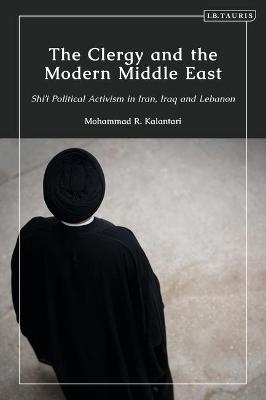
The Clergy and the Modern Middle East
Shi'i Political Activism in Iran, Iraq and Lebanon
Seiten
2021
Bloomsbury Publishing PLC (Verlag)
978-1-83860-556-8 (ISBN)
Bloomsbury Publishing PLC (Verlag)
978-1-83860-556-8 (ISBN)
The Shi’i clergy are amongst the most influential political players in the Middle East. For decades, scholars and observers have tried to understand the balance of power between, Shi'i ‘quietism’ and ‘activism’.
The book is based on exclusive interviews with high-profile Shi'i clerics in order to reveal how the Shi’i clerical elite perceives its role and engages in politics today. The book focuses on three ground-breaking events in the modern Middle East: the 1979 Islamic Revolution in Iran, the 2003 Iraq War, and the 2006 July war in Lebanon. By examining the nature and evolution of a Shi'i clerical network the book finds that, far from there being strategic differences between ‘quitest’ and ‘activist’ clerics, Shi’i mujtahid statesmen matured, from 1979 in Iran to 2003 Iraq, by way of a pragmatism which led to a strong form of transnational and associated whole in Lebanon in 2006.
In doing so, the book breaks down the established, and misleading, dichotomisation of the Shi’i clergy into ‘quietists’ and ‘activists’ and discovers that the decision of Shi’i clerical elites to become politically active or to stay out of politics are attributable to their ability to adapt to their political environments.
The book is based on exclusive interviews with high-profile Shi'i clerics in order to reveal how the Shi’i clerical elite perceives its role and engages in politics today. The book focuses on three ground-breaking events in the modern Middle East: the 1979 Islamic Revolution in Iran, the 2003 Iraq War, and the 2006 July war in Lebanon. By examining the nature and evolution of a Shi'i clerical network the book finds that, far from there being strategic differences between ‘quitest’ and ‘activist’ clerics, Shi’i mujtahid statesmen matured, from 1979 in Iran to 2003 Iraq, by way of a pragmatism which led to a strong form of transnational and associated whole in Lebanon in 2006.
In doing so, the book breaks down the established, and misleading, dichotomisation of the Shi’i clergy into ‘quietists’ and ‘activists’ and discovers that the decision of Shi’i clerical elites to become politically active or to stay out of politics are attributable to their ability to adapt to their political environments.
Mohammad R. Kalantari is Research Fellow and Deputy Director at the Centre for Islamic and West Asian Studies, Royal Holloway, U.K. He has been Research Affiliate at the University of South Florida and Research Associate at the Center for the Great Islamic Encyclopaedia, Tehran.
| Erscheinungsdatum | 22.10.2021 |
|---|---|
| Verlagsort | London |
| Sprache | englisch |
| Maße | 156 x 234 mm |
| Gewicht | 535 g |
| Themenwelt | Sachbuch/Ratgeber ► Geschichte / Politik ► Allgemeines / Lexika |
| Geisteswissenschaften ► Religion / Theologie | |
| Sozialwissenschaften ► Politik / Verwaltung | |
| Sozialwissenschaften ► Soziologie ► Spezielle Soziologien | |
| ISBN-10 | 1-83860-556-8 / 1838605568 |
| ISBN-13 | 978-1-83860-556-8 / 9781838605568 |
| Zustand | Neuware |
| Haben Sie eine Frage zum Produkt? |
Mehr entdecken
aus dem Bereich
aus dem Bereich


